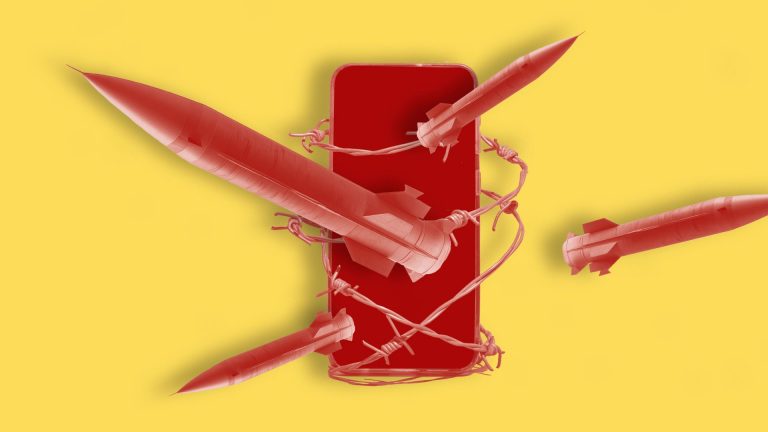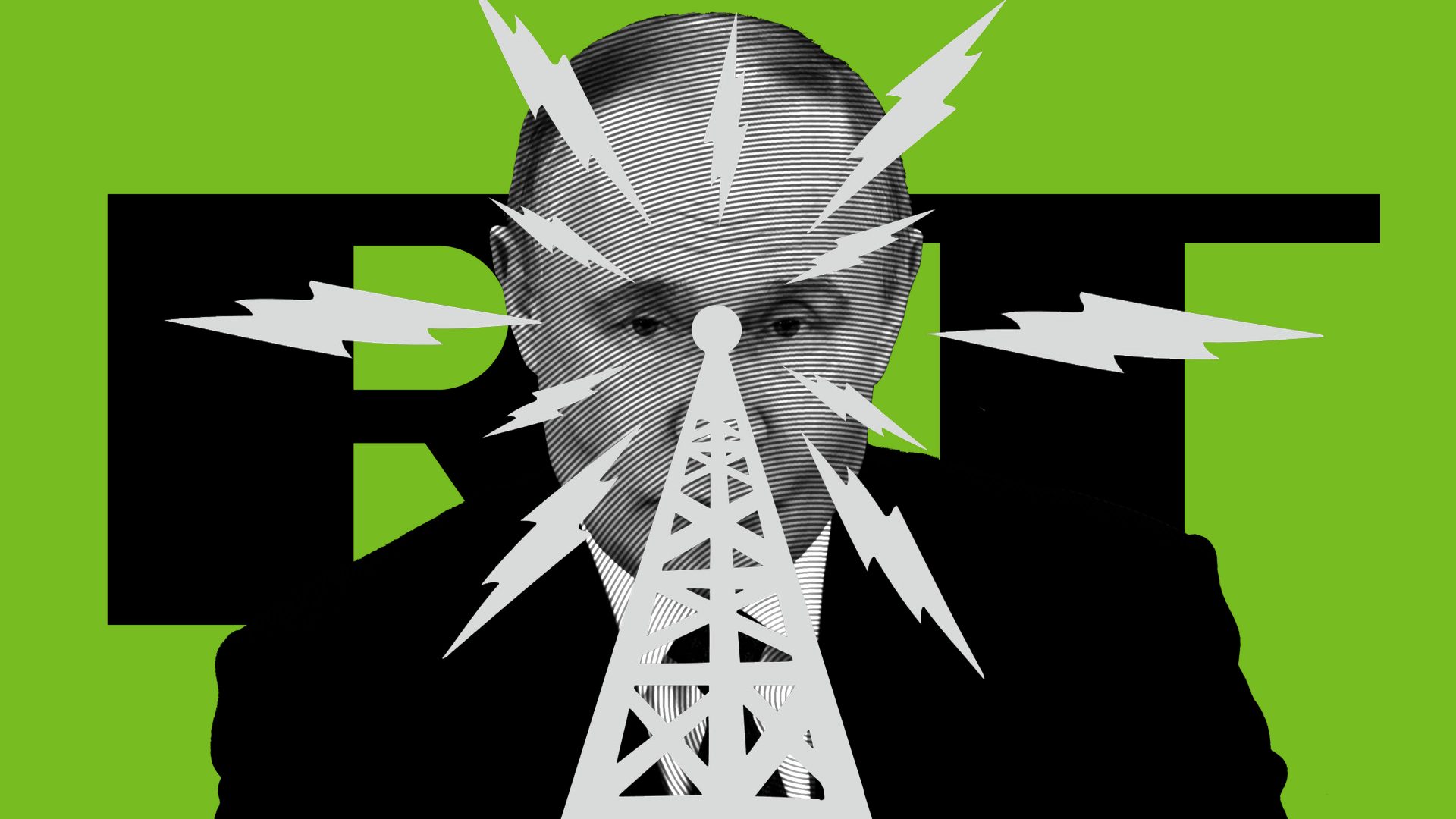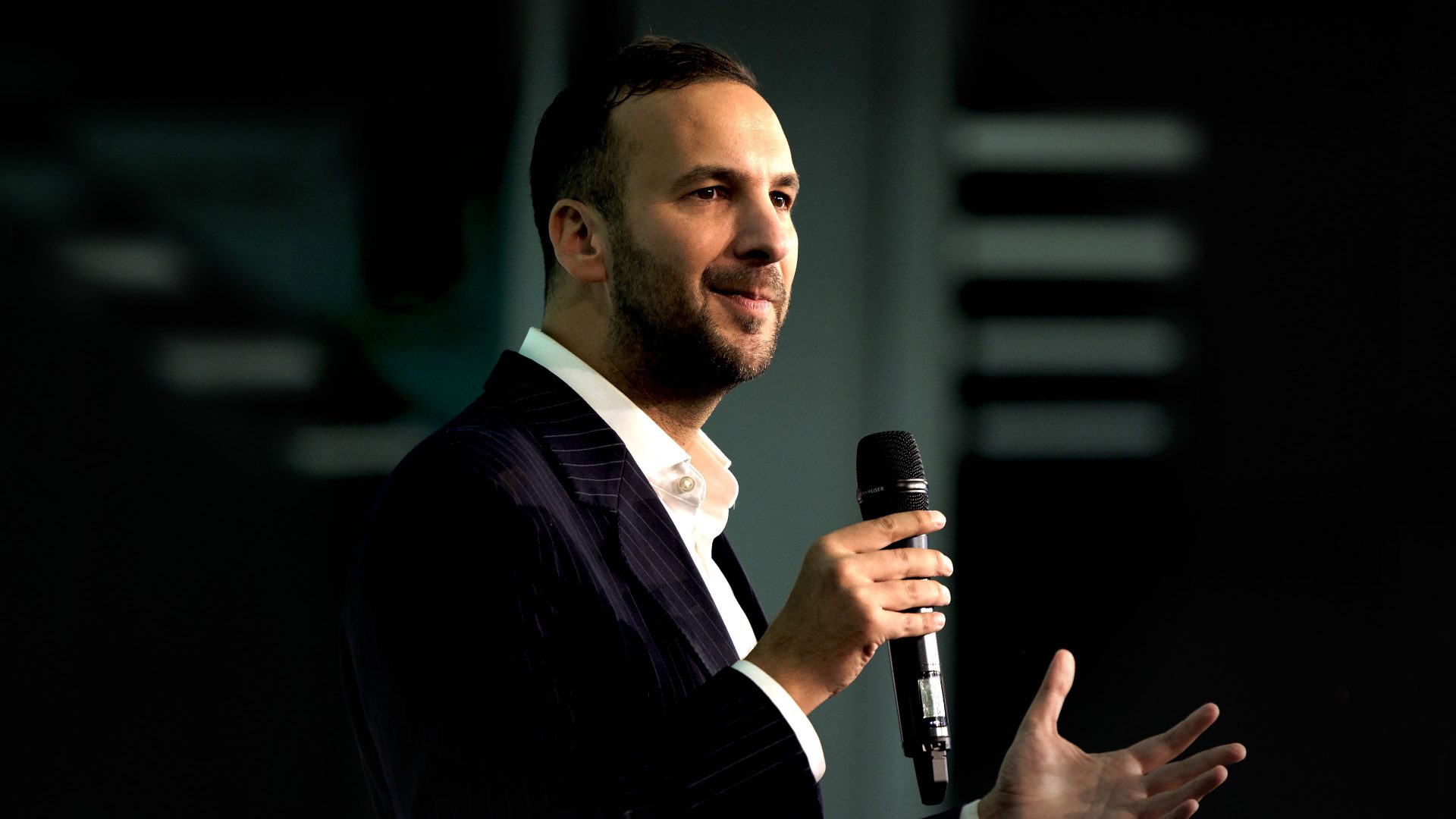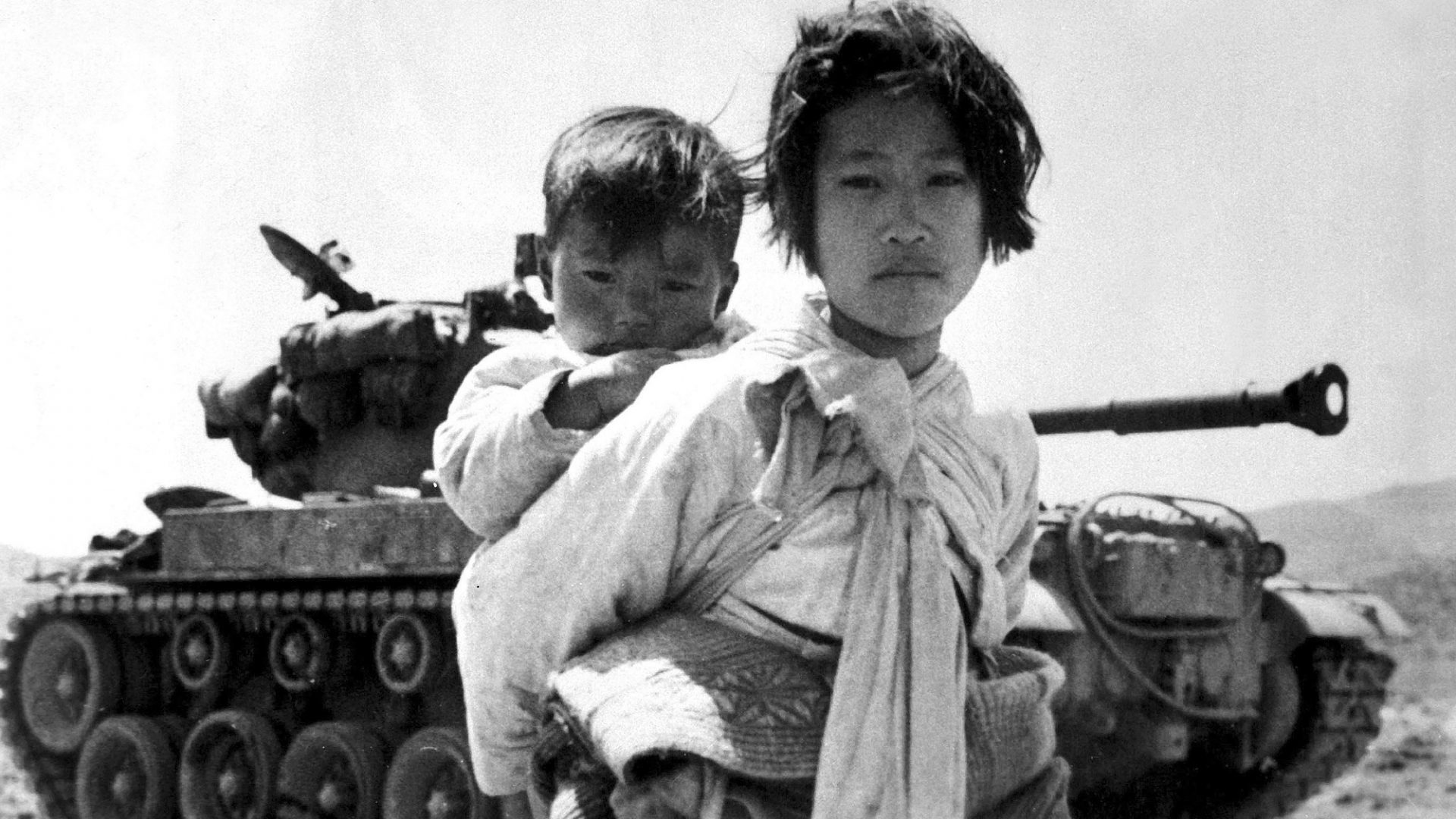Tsedale Lemma was born and raised in Ethiopia – but she grew up listening to American radio. “Every day at 9pm, we could not drop a needle in the house because my dad was glued to his radio,” she recalls. During Ethiopia’s military dictatorship in the 1970s and 1980s, the only media that wasn’t directly government approved was the Voice of America (VOA), the US’s global public radio service.
Listening wasn’t easy. It required a short-wave radio “with a very strong antenna” that her father had managed to get hold of “from, I don’t know, the Russians, or something like this”. But they went to that effort to be able to listen to the news every evening, broadcast to them by VOA.
“He passed away last year,” she says. “He was a good civil servant, and a good teacher and he was glued to that radio every night at 9pm and we did not move around the house because he had to listen.”
It is a story that will resonate with many Ethiopians who came of age in the 80s and 70s – even the 90s. But now the Voice of America has been silenced, and those broadcasts into Ethiopia are no more, thanks to the cutbacks instituted by president Donald Trump and his personally appointed commissioner, the former news anchor Kari Lake.
Trump accused Voice of America of being “the voice of radical America”, and of peddling “anti-American” “woke” propaganda. More than 600 employees around the world have lost their jobs on account of his cuts, and the VOA – which in Ethiopia transmitted in the Amharic language – has been shuttered almost everywhere.
For Tsedale Lemma, this sudden silence is more than a matter of nostalgic regret. She is the founder and publisher of Addis Standard publications, one of the last independent media groups in Ethiopia, which operates in an increasingly oppressive environment. In April, the newspaper’s offices were raided and three managers were detained. Police seized reporters’ laptops, phones and more, and demanded passwords.
This year, Ethiopia entered the “very serious” category of the Reporters Without Borders press freedom index. “In these zones, press freedom is entirely absent and practising journalism is particularly dangerous,” the organisation warns. In Ethiopia, “multiple journalists are still in prison due to their coverage of the conflicts,” it said, a reference to the conflict in Ethiopia’s Tigray province. “Unable to continue practicing their profession, some have left the country.”
Journalists are arbitrarily detained or even disappeared for weeks or months at a time, before their colleagues can track down where they have been taken. Amid escalating tensions and a fraying peace deal between Tigrayan leaders and the federal government, reporters often relied on the better-resourced Voice of America for information. Now, they are on their own.
The American media withdrawal from Ethiopia has left a vacuum that other international media organisations, such as the BBC World Service, simply cannot fill. The BBC is still in Ethiopia and transmits in three languages, but those broadcasts mainly consist of the BBC’s global output and there aren’t enough resources for proper local engagement. They do a good job, but it simply isn’t enough – and so, just as Trump is forcing Voice of America to withdraw from Ethiopia, Russian and Chinese state-owned media are moving in.
Last month, the RT (formerly Russia Today) Academy held its first-ever journalism training course on the African continent in Ethiopia’s capital, Addis Ababa. “RT conducted sessions for local media professionals and staff from the Ministry of Defense,” said a press release on the organisation’s website. “RT experts also led intensive training at Ethiopia’s two largest television networks.”
During the visit, RT also signed a formal cooperation agreement with Ethiopia’s largest TV channel, while its sister outlet Sputnik recently opened a “state-of-the-art” production centre in the city, which will serve not just as a reporting bureau but is also intended to “serve as the cornerstone of Russian media on the continent”.
Suggested Reading

The disinformation war on Europe
The replacement of American soft power with that of its adversaries could hardly be more obvious, and Russia is not even trying to hide it. “Promoting Russian perspectives on various international issues will aid in the informational liberation of the global south, including African nations,” said Alexander Yakovenko, a former Russian ambassador to the UK who now serves as a senior executive in Sputnik’s parent company, in remarks given during the official opening of the hub.
“At present, the West is closed off to differing perspectives within its own territories,” said Yakovenko. “Yet it will still have to compete with us in the global information sphere, where we face no constraints.”
America hardly operated VOA out of a sense of charity – it believed that funding journalism would encourage warmer views towards America, and that its international ambitions would be helped in turn. If Russia was simply stepping into the gap that America was leaving behind, and producing independent (or relatively independent) journalism, it would surely be difficult to object.
Unfortunately, even by Russia’s own account, that does not seem to be what’s on offer. Moscow has a long history of using its media outlets across the world to spread disinformation and polarising news. Another executive involved with the Addis Ababa launch, Dmity Kiselyov – who has been on the EU sanctions list since 2014 – gave a TV interview in which he made clear that only approved messages would be allowed on these new networks. “Correspondents [in the new hub] will submit their content to the Moscow headquarters,” he said.
And Russia is not alone. In May, a US Senate foreign relations committee heard evidence that Chinese state media is investing $1bn across the world in local journalism production, much of it in Africa – leading to a visible change in the tenor of reporting from those regions.
“Sputnik is expanding its coverage now,” Lemma says of Ethiopia’s media landscape. “It’s not just the opening of the headquarters, but also now Sputnik Amharic is really growing. It’s a slick media production, it’s highly funded, and it’s supported by the government.
Ethiopia might not be the top priority for western foreign policy specialists, whose focus is trained on Israel, Iran and Ukraine. In the US, particularly, Trump voters are likely to say that this is exactly what they voted for – the reduction of American money that’s being spent overseas in countries they couldn’t place on a map.
And yet, Europe and the US give aid to countries across Africa, and are trying to build trading relations with them. The relatively small investment of supporting independent media, and providing alternatives to government-controlled media must be worthwhile if it helps western governments to build economic and diplomatic alliances, and stop the spread of authoritarian influence.
“I think with the Americans it’s a lost cause,” Lemma says. “You cannot reason with this decision that the Trump administration took… and it largely drew no outcry from the American mainstream media. There are some reports in the Washington Post or New York Times, but there are no tears being shed.”
Her remaining hopes are with Europe, and with Britain: that the UK government might put more money into the BBC World Service, for reasons of enlightened self-interest, if nothing else.
“RT is banned in European countries, right? Within the EU you can’t even broadcast that,” she says. RT has lost its broadcast licence across the UK and most of Europe.
“So, you have a news organisation that you decided to ban in your turf, and you’re watching silently when that same news organisation is expanding like a wildfire in a country that you strategically considered to be an ally in the Horn of Africa, right? Who does that?”




